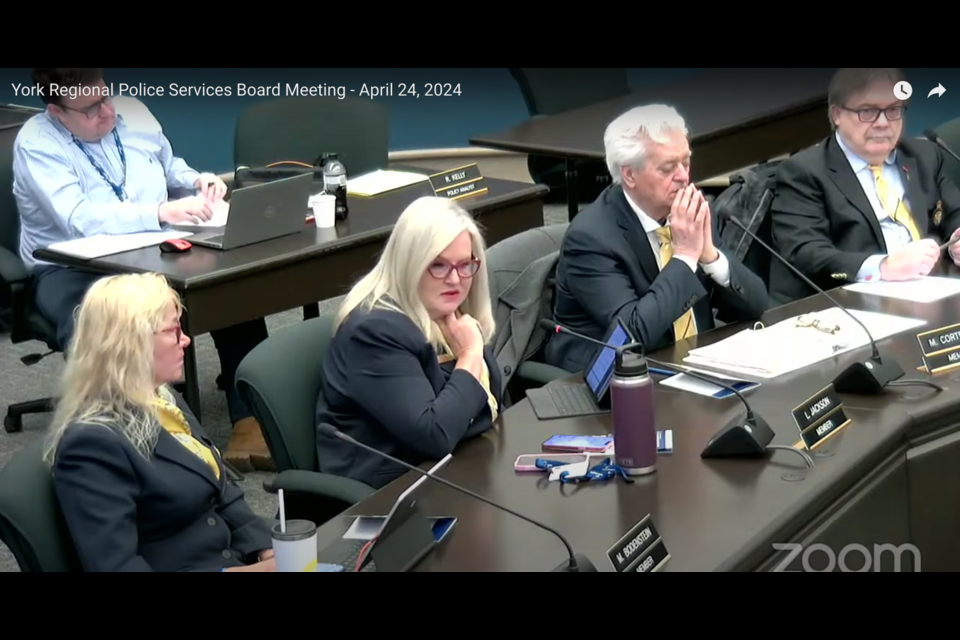Hiring an ombudsperson to address human rights complaints and workplace conflict is one of measures included in York Regional Police's 2023-25 inclusive policing action plan.
The ombudsperson will oversee the intake of confidential complaints regarding human rights issues, Insp. Chirag Bhat said at the York Regional Police board meeting April 24.
The three-year plan approved by the board contains 11 actions aimed at addressing inclusion, diversity, equity and accessibility in the organization and community, including an equity audit, race and identity-based data collection, and racism training.
Board member and Vaughan Regional Councillor Linda Jackson raised a concern about the independence of an ombudsperson, and referenced the example of a municipal integrity commissioner who reports directly to council "so there’s no middle layer of shoving in and weaving people in the wrong direction.”
“I want to make sure there is a clear line of independence" so complaints and issues can be fairly and thoroughly investigated, she said.
Bhatt clarified the ombudsperson will report to the executive director of the professionalism, leadership and inclusion office, who is a lawyer and legal counsel.
Jackson added she was also concerned about the ombudsperson's ability to independently investigate workplace issues if reporting to the force itself.
Chief Jim MacSween explained the intent is to deal with the issues before they become full investigations.
With concerns about workplace harassment and sexual harassment, and similar issues, MacSween said the ombudsperson will assist the force in being "proactive about these matters of incivility and workplace conflict."
"So we ... can know when things, from time to time, are bubbling up in a big organization like ours. We want to know it sooner rather than later," MacSween said.
The inclusive policing action plan includes an anti-racism and race equity strategy, which the board and chief will create and implement, to address service delivery, professional development, recruitment, selection and promotion, professional conduct, supervision, and accountability, and communication and consultation. It will include input from the community.
The plan follows up on 2020-2022 action plan and consultations with and reports issued by internal and external stakeholders, the force said.
The equity audit will examine both employment practices and operational service delivery to ensure policies at the service level and the chief are working to foster accountability.
The board and the chief, in consultation with the public, will develop a race-based data collection analysis, reporting and response system and policy. The two-year project focusing on employment data and police interactions.
Training policy will be revised to include ongoing equity, diversity inclusion and anti-racism training mandatory for all members, and specialized training will be provided to officers investigating race-based workplace cases.
Workshops will continue to be offered to focus on anti-Black racism, anti-Asian racism, and the intersectionality of race and religion.
The plan states that the goal is to build organizational capacity to achieve the following objectives:
- Embedding equity principles in recruitment processes
- Anti-discrimination policies, practices and processes are modernized to support a safe and respectful workplace
- Relationships between police and community are strengthened
- Members are educated about the Truth and Reconciliation Commission findings
- Wellness supports address the biological, psychological, social and spiritual needs of members and their families
- Members with accessibility needs are supported by internal programs, education and awareness initiatives.



